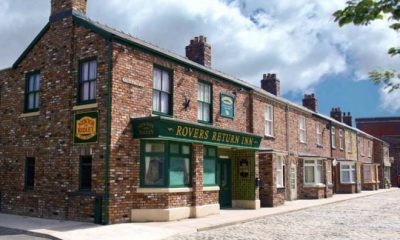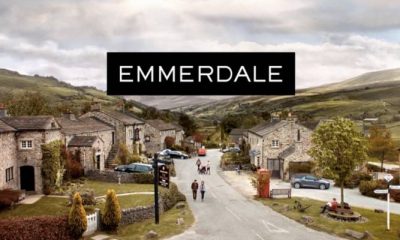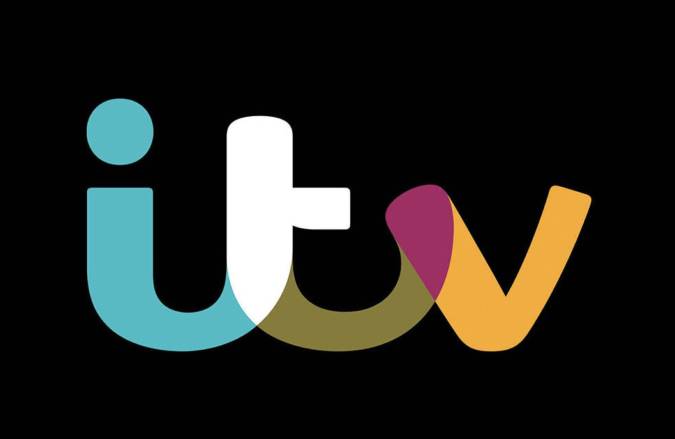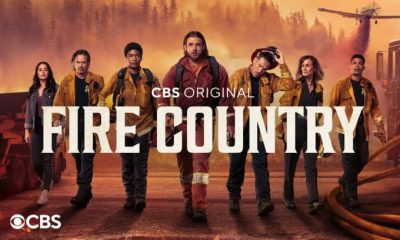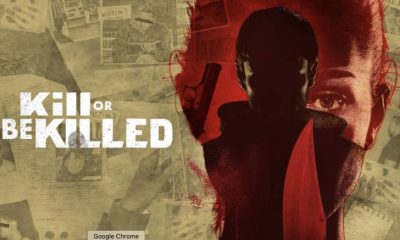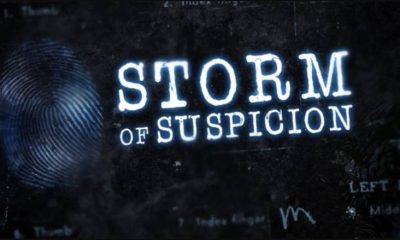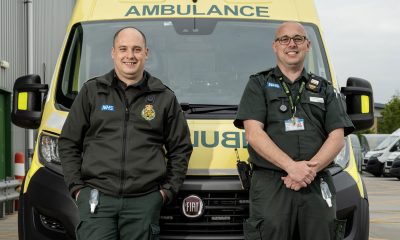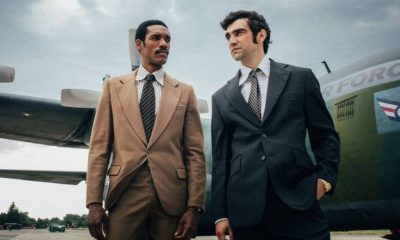Interviews
The Tower | Interview with Kate London (Author)
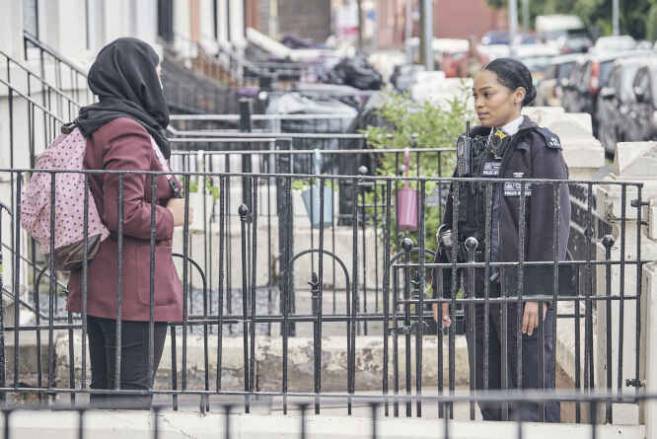
Can you tell us about your own career-path?
I was from an unconventional background for somebody who went to Cambridge and my life reflects this. I didn’t have a plan, or a clue about ‘career paths’. I studied history, which is a fantastic subject for developing curiosity. After graduating I went to Paris and trained in theatre with Philippe Gaulier and Monika Pagneux. I then co-founded and ran a theatre company, acting, writing and directing. We toured in the UK and abroad and I also worked a little bit outside the company.
How did you make the switch from the arts to the Metropolitan police?
I was a non-executive director on a statutory body and the chair was a former chief constable. We ended up spending a lot of time together and I mentioned that I had always been interested in policing, but that people like me didn’t go into the police. ‘Oh yes they do,” he said. “Go on, off you go.’ That’s what I mean about not really having a career-path. I sent off the forms and the next minute I was a police officer.
How does your early experience as a police officer mirror PC Lizzie Adama’s experiences as a rookie cop in The Tower?
I instinctively chose Lizzie to be young-in-service, as we call it, as this is a uniquely vulnerable moment. An officer at the start of her career is looking around, trying to work out how it’s done. With a bit more experience you gain police friends who you respect and trust. If you’ve got a problem you can go to them and say, ‘I’ve got a bit of a difficult one. Can we have a chat about this?’ I was talking to a friend of mine who was a senior officer in the Met about Lizzie’s predicament. He said, ‘Well, you and I would just say to her, tell the truth.’ It’s very important at this stage in an officer’s career that they are around people who will give them good advice. The other thing is that young officers are highly motivated. Taking every single call. If there’s an offer of overtime, they take it. They don’t sit back. They don’t wait and see. And that also makes them vulnerable.
How did you process things after a tough day?
I think I’m still processing it now! One of the ways that I used to process things was to go home and write. I would just write little scenes. When I was a child, I was always writing little stories and poems. Writing is really joined up for me emotionally. So, when I started policing, I’d find myself writing scenes and little bits of prose or a phrase or a sentence and I suppose that was helping me to think through the things I had experienced. I hadn’t written like that since I was a child. Working response, you are taking 999 calls all day. It’s one after the other after the other. Here’s the family where the child needs to be taken into care. Here’s the lost old Bassett hound snarling at people in the street. Here’s the dead person. Here’s the ‘this’ and here’s the ‘that’. It’s very strong, all these different experiences all hard up against each other. And then it stops being like that. It changes. One day this becomes normal.
Is that because you simply become used to things?
like the Red Sea for my colleague and me who were first on scene. I can remember thinking, ‘Oh I’m the police officer!’ It all turned out well and the child was fine. Then a couple of weeks later I went to another serious domestic incident. I went through the whole incident, again with a life in danger, and it was only when I was writing up the incident report that I suddenly realised that at no point had I experienced that surreal sensation. I had become a police officer.
What sold you on Patrick Harbinson to adapt your stories for TV?
I was in this really lucky position that my brilliant agent basically had four companies in the room wanting to acquire the rights. They had really good pitches – it was painful to have to choose. What was different about Patrick was that he was going to write the series himself. Patrick has an incredible track record. Everybody talks about Homeland but he’s done so much more, and such a variety of things. He’s not only a writer, he’s also a showrunner. He has this ballast, if you like. He was also in a position to pick and choose what he did. He wasn’t a company, optioning lots of books. He wanted, very specifically, to adapt my books. And he talked to me so brilliantly about them; the characters, the choices they make, the nature of the stories I am trying to tell.
Patrick says you agreed 95% of the time when you were collaborating. What were the areas of debate?
At the beginning, Patrick said he would collaborate with me and I thought, ‘Well, he may not.’ I’ve been a police officer. People say stuff. So I was really surprised how generous he was about including me. I think it goes to show how good a writer he is. He likes to drill down into something, to understand what you’re saying. If you say, ‘That doesn’t work for me’ he will ring you up and say, ‘Tell me about that, explain that, how does that work?’ Mostly we’ve agreed, but we have had the odd tetchy moment where I’ve thought one thing and he has thought another. He goes away and he thinks about what has been said. He’s very fair, and generous. It’s been, for me, a happy process. I’ve felt free to express my opinion, knowing that there’s an atmosphere of trust in the room. Patrick’s great. And that’s not just interview speak.
Is the intention to explore institutional racism in modern policing?
Race is at the heart of the inciting incident in The Tower. London is the most diverse city in the world. If you are writing a story about policing in London that diversity is going to come up. If it’s not coming up then you are not writing about policing in London. We know race is a powerful, important issue for us all. We see it on our television screens every day. But I don’t write thinking, this book is about this, or about that. My starting point is more instinctive. And the specifics of the characters are very important to me. Hadley is a very specific character, and it’s out of the specifics of his character that the story arises. This specificity is important. Stories are not generalisations.
In my story two officers attend a neighbour dispute and something is said in the hallway and things go wrong from there. What I liked about this was the process of escalation, which is an experience that I have had in policing. Something which on first appearance is quite small has the potential to escalate massively. Another aspect is the use of language. Some will say that what Hadley says isn’t a big deal. It’s just a joke. I have a friend who now trains officers and he is adamant on this – in the context of policing whether these things.
Are said through ignorance or racism is irrelevant: the damage is the same regardless. And I think Patrick’s script examines this scrupulously. He shows how alienating and devastating such words can be.
One of the questions asked of the audience and many of the characters is who is telling the truth?
Yes. I think that telling the truth is one of the big protective factors, not just against racism but against all kinds of wrongs. And that’s not just in policing, it’s everywhere. As a species we struggle with telling the truth. We don’t find it easy. As you get more experienced in the police you realise you mustn’t ever lie. It’s disastrous to lie. Lizzie hasn’t learned that yet.
Gemma Whelan was on your original short list of actors to play Sarah. What made you think she would be a great fit?
She’s fantastic. She’s got this independence about her in every part she plays. She’s got a huge playing range across many roles. Seeing her work, I was even more impressed. She’s very, very good. She is always emotionally alive to what is happening. And that independence and intelligence comes across.
What was it like watching the big interview scene she plays with Tahirah Sharif?
It was very interesting. I watched it with the police adviser, Claire Job. Claire served in the Met and was an extremely accomplished detective. I was very much part of the process of finding a police adviser because that was really important to me. So, we had both done a lot of real-life interviews and we both of us also really loved the interview process. We were watching something that we had a real connection to. Also, I had written those characters who were in the interview. I can’t describe how real they are to me. And suddenly there they are, flesh and blood, going through this process that Claire and I used to do in real life. It was a slightly surreal experience. But they did really well. Gemma captured brilliantly the ebb and flow of an interview, how it goes in one direction and then in another. In the end Claire and I both got caught up in it and really liked it.
What did you used to love about doing those interviews?
I was talking about this to the actors. There is a sort of moment of suspense before you interview: a bit like when you are waiting in the wings to do a part that is really important to you. You’ve done all your prep. You’ve done all your research but what’s going to matter is what happens moment to moment in that interview. You have a lot going on. You have to keep command of all the information, pick up on any cues, ask the penetrating question, and all this within the law. Interviews, or parts of interviews, can be ruled inadmissible for a variety of reasons. So, you are thinking on your feet. It’s that sort of intensity combined with the fact that you ask people things that go to the heart of character, about who they are and what they have done. It’s like a sort of no bullshit moment. Often interviewees just make no comment. Sometimes people sit on the floor. They may put a jacket over their head. All sorts of things happen in interview. They are an important part of the investigation. You feel that moment when the suspect is given the opportunity to give an account. Sometimes they surprise you. They say things you would never have imagined. It’s a great part of policing.
What part of policing don’t you miss?
Shifts. People have no idea the long hours that police officers work. You see the clock come round. When a job breaks you can do 24 hours no problem. Go home, have four hours sleep and come back in and work again. It’s horrendous. And the other thing is the unbelievable, excruciatingly frustrating bureaucracy.
The Tower is a drama, not a documentary, but do you hope it gives people a better understanding of the realities of policing?
It’s in my nature to resist the idea that I want to give the public a better understanding of anything. I am kind of inviting my readers to see a story unfold and see how they feel about it. But even those of us who are clear that we don’t want to write didactic stories still harbour this sneaky hope that by writing really carefully and thoughtfully about people and how they respond to things that somehow we will improve things. But what would improvement be? Something much more nebulous than to give a better understanding of the realities of policing.

 News3 days ago
News3 days agoJeopardy! Wednesday May 15, 2024, Recap, Winner and Final Answer

 News2 days ago
News2 days agoThe Steve Wilkos Show: Chad & Clarissa, Tashanda & Maurice (Friday, May 17, 2024)

 News2 days ago
News2 days agoCoca-Cola’s Dirty Secret: Dispatches (Channel 4, May 16, 2024)

 News2 days ago
News2 days agoThe Hotel Inspector: Lantern Theatre and Cafe (Channel 5, May 16, 2024)


